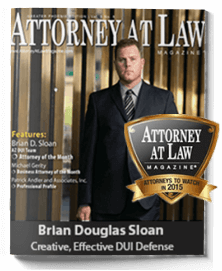Interviewer: What are some ideas or issues that you notice that have been helping people’s cases and that you’ve been discussing in the seminar that may be helping people’s cases?
What Is Proof beyond a Reasonable Doubt? Do Juries Understand the Term?
Brian Sloan: The last seminar that I did I’ve been trying to explain to other attorneys the ways of possibly getting the jury to understand this concept of proof beyond a reasonable doubt. Proof beyond a reasonable doubt, it’s something that we learned in law school. It’s something that is a legal term that even in law school, you don’t go into law school knowing what this term means, yet we expect jurors to come in and understand this term right away.
Should the Word Proof Be Changed to Conclusion?
Proof beyond a reasonable doubt means different things to different people. It also means different things to attorneys than it does to your average civilian. In my seminars, I try to relay to other attorneys that we should explain a little bit better what proof beyond a reasonable doubt is.
Let’s put it in terms of the only reasonable conclusion is. This is because if there’s a reasonable doubt, then that is not the only reasonable conclusion. So let’s change “proof beyond a reasonable doubt” to say that “the only reasonable conclusion is.”
For example, has the prosecutor proved beyond a reasonable doubt that a person was driving? The question that the jury should be asking themselves is, “Is the only reasonable conclusion that the person was driving?”
It puts things in terms that jurors understand a lot better, and I think it makes it easier for the jurors when you get into the more complex aspects of the case. It might be easier for them to discern as to whether someone was truly impaired to the slightest degree by the consumption of alcohol or whether they’re truly above a .08 blood alcohol content or whether they truly had drugs in their system, when it comes down to not whether they had drugs in their system, but has the prosecutor proved that the only reasonable conclusion is that they had drugs in their system, or is the only reasonable conclusion that they were truly above a .08 blood alcohol level.
The True Responsibility of a Jury Is to Decide Whether or Not the Prosecutor Proved the case beyond a Reasonable Doubt
If you reformat the question, it may make it more understandable to the jury so that they can kind of look at the evidence a different way and do the job of the jury, which is not to decide whether someone is guilty or not guilty, that is the consequence of their decision. Their decision is supposed to be, did the prosecutor prove their case beyond a reasonable doubt to leave them firmly convinced in the evidence.











